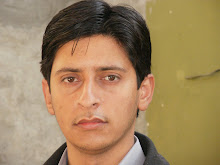The human body and mind is constantly exposed to stress and strain. So we need to take time off to recharge our batteries. Sleep, of course, is the optimum mode of relaxation but there are times when one is so fatigued that even sleep becomes difficult. Also, sleep itself does not take the load off the brain.
People resort to different forms of relaxation. Some listening to music, some prefer to withdraw within the arms of nature either on a beach or the might of the hills. All these activities do refresh the mind as it is moved away from routine activities and tasks. But, still the brain does not get rest. The brain is constantly functioning. It’s an organ which like the heart, never gets to rest.
When the brain is severely fatigued, there is lack of clarity in thought and action. Brain fatigue is also reflected in body and emotions. Consider an executive who has had a 14hour day. It’s not uncommon for him to get irritated at the slightest provocation at the end of the day. His little child may demand an ice cream and the child may get a yelling which he definitely did not deserve.
Yoga is associated with relaxation. But, little does one know that yoga offers different kinds of relaxation. In fact, asanas themselves can lead to different forms of relaxation.
For a novice to the field of yoga, who tends to perform asanas as a form of exercise, it’s the exercise potential of asanas that refreshes his mind and body. Another form of relaxation is physiological relaxation brought about by the asanas. Thanks to the innovative genius of Guruji Iyengar, the use of supports makes it possible for even the sick ,exhausted and the old to support and relax their organic body. Asanas like Viparita Dandasana, Sethu Bandha Sarvangasana, Purvottanasana, Supta Virasana, Supta Baddhakonasana, done with a support for the back, create an extension and expansion of the organs in the thorasic cavity i.e., the lungs and heart. Thus, the breathing capacity of the individual improves and the individual feels refreshed.
Physiological relaxation is the one that is brought about by extraneous means. This may be listening to music or through a conscious attempt to quieten the brain, either by another individual or by oneself. This is often referred to as meditation (please do not miss interpret this meditation with the traditional meditation, which can never be artificially induced.)
Another unique type of relaxation is biological relaxation, which is superior to all forms of relaxation. It’s one that not only relaxes the skeleto-muscular and organic body, but also the brain. In all other forms of relaxation, the brain remains active directing the body or mind to relax.
This relaxation is the one brought about by doing Sirsasana by hanging upside down where the ropes support the sacro-illiac region. Amongst the various props invented by Guruji Iyengar, I would say that Sirsasana done on the ropes is possibly the most popular one. This simple mode of supporting the body in Sirsasana has led to many individuals trying to create devices costing hundreds of dollars to imitate this sirsasana. But, imitation without understanding the principles is not effective.
“Sirsasana done in this manner leads to total disappearance of the stress. A biological quietness is felt on the nerve cells of the brain, but at the same time keeps the mind alert and passive“.
Normally, the brain is always the subject directing other parts of the brain, or the body or other people. But, here, the brain becomes an object which is thoroughly quietened.
The abdomen recedes and it totally flattens even in individuals with a ‘big tummy’. The consequence is the breathing becoming deeper and smoother. Thus, physiological relaxation becomes integral to it.
There is only one word of caution though-one needs to ensure that the rings through which these ropes are inserted are firm and the ropes strong. Initially, this asana needs to be done under the guidance of a trained teacher.
 Print
Print




0 comments:
Post a Comment